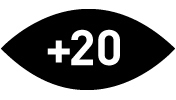

This is a fitting film to launch my '84@40 series revisiting the films of 1984 on (or close to) their 40th anniversaries because Police Academy is a quintessential ‘84 release. It also, in many ways, epitomizes what many people think of when they think back on the most negative aspects of 1980s movies—cookie-cutter pictures about smug white dudes being shitty to people for cheap laughs within simplistic narrative formulas that spawned endless sequels that were essentially the same movie but with one slight change; like, this time the gang goes to Miami!—but, much like the entire decade of movies, the film is much better than you might remember it.
Just as when I tell people that not only is 1984 my favorite year of movies but I consider it the greatest year for cinema (aside from, maybe, 1939), I get funny looks when I say I enjoy Police Academy. Part of why this film is rightly associated with junk cinema is because of the franchise it launched—six feature sequels, a TV series, and a cartoon. Each of these took the original R-rated comedy and made it more and more kid-friendly; the first sequel was PG-13, the second was PG, and by the time it got to the animated series, it was downright wholesome! But the original film is pretty dang funny. Much of the humor is sophomoric, off-color, and dumb; but I can't deny that it made me laugh, and still makes me laugh. Not everyone shares this view—Roger Ebert famously gave the film zero stars in his print review and said on Siskel and Ebert, “It's really something. It's so bad maybe you should pool your money, draw straws, and send one of the guys off to rent it so that in the future, whenever you think you're sitting through a bad comedy, he could shake his head and chuckle tolerantly and explain that you don't know what bad is.” The film currently holds a week 56% Rotten Tomatoes score.
Police Academy follows in the footsteps of Private Benjamin and Stripes, mining comedy by placing a bunch of misfits and anti-authoritarians into the rigidly enforced hierarchy of a militaristic institution. It follows the “slob vs snobs” formula of Animal House, Caddyshack, and their imitators but casts highly attractive actors in the “slobs” roles. While these good-looking stars aren't as comedically gifted as folks like Bill Murray, John Belushi, Harold Ramis, Rodney Dangerfield, etc., they're not just pretty faces. Steve Guttenberg, Kim Cattrall, Michael Winslow, Andrew Rubin, and others—these are pretty funny actors, and when they're pitted against iconic ‘80s killjoy G. W. Bailey, the results may not be comedy gold, but they're at least comedy bronze. What Police Academy does so well is give us more of what Private Benjamin and Stripes underdelivered—scenes spent within the actual institution the film is ostensibly about. It's wild how few scenes of basic training are in both Private Benjamin and Stripes.
The film was the directorial debut of Hugh Wilson, who created one of the greatest TV sitcoms of all time, WKRP In Cincinnati. But the project originated with producer Paul Maslansky, a film veteran whose career dated back to 1963 when he served as unit production manager on Jason and the Argonauts. Twenty years later, Maslansky was in San Francisco working on The Right Stuff, and he noticed a bunch of odd-looking police cadets, some noticeably obese, some who looked too old to be starting out in the force, being aggressively dressed down by a sergeant. The story goes that he asked the sergeant about these folks, and the guy explained that the mayor had ordered the department to admit a far wider and more diverse spectrum of recruits for the police force. This sergeant was clearly not happy about the new progressive policy. He told Maslansky, "We have to take 'em in, and the only thing we can do is wash 'em out." The producer saw it as a great premise for a spin on the slobs vs snobs style comedy and pitched Alan Ladd Jr., whose company was producing The Right Stuff, the idea for a raunchy comedy about misfits joining the police force and triumphing over the old-boys-club authority figures who try to wash them out. Laddy liked the concept and green-lit the project.
Maslansky hired TV writer Neal Israel to develop the script, and Israel brought on his new writing partner Pat Proft, who had been a part of the Kentucky Fried Theater with Jim Abrahams and Jerry & David Zucker. Israel and Proft had a knack for structuring narratives around what was basically simple gag writing; they would also pen 1984's Bachelor Party and 1985's Real Genius. Wilson was approached to direct, but he was not a fan of rude, mean-spirited, anti-establishment comedies. He disliked the screenplay and asked to rewrite it, taking out most of the vulgarity and gratuitous sex. The project was then put into turnaround because the studio believed you couldn't make a teenage, gross-out, make-out movie without lots of dick and fart jokes, T&A, and outrageously demeaning antics. A hybrid of Wilson's script and the Israel/Proft screenplay was devised, and the film became a go picture.
For the lead role of Carey Mahoney, Maslansky and Wilson approached rising stars Michael Keaton, Tom Hanks, and Judge Reinhold but settled on Steve Guttenberg, who has just the right type of smug appeal to make the lead character winning without coming off as too insufferably obnoxious. Like Keaton, Hanks, Chevy Chase, Tim Mathieson, Robert Hays, Dana Olsen, etc. Guttenberg was one of the many actors who was often cast as a self-assured, snarky character who oozed privilege and condensation. These "adorably" cocksure rapscallions seemed to be everywhere in 1980s comedies, constantly jumping into scenes and upstaging their co-stars with aggressively comical shenanigans. It was a trope that was written into many scripts, so it’s hard to fault great actors like Keaton (in films like Night Shift) and Hanks (in films like Bachelor Party) for giving their all when embodying these guys. Guttenberg, at this point, was certainly playing for the JV team of this particular character type, but he's exactly what Police Academy required. He was a fresh face that people only knew from Diner, Barry Levinson's iconic coming-of-age period piece in which he plays one of the more serious characters, and the heavy nuclear war TV movie The Day After. So, he didn't really bring a lot of prior wacky associations to Carey Mahoney.
Kim Cattrall, on the other hand, had made a huge impression in 1982's Porky's, at the time, the biggest teen sex comedy ever made. Just seeing Cattrall in the trailer got every horny teenage boy to figure out a way to get into this R-rated film the same way they had for Porky'smaking it a top-10 box office hit for '84 the way Porky's was in '82. But Police Academy is not the raunch-fest Porky's was. It certainly has its share of low-grade misogyny, racism, flatulence, and recycled jokes from better movies, but its underlying spirit is one that, in its own crude way, celebrates diversity, equity, and inclusion in a manner few comedies of this period ever tried. I will even go to bat for the so-called "gay panic" elements of Police Academy. While these jokes were undeniably aimed at a largely homophobic audience, the characters we are meant to root for mostly don’t possess these prejudices; in fact, quite the opposite. The gay-panic jokes are always played at the expense of the authority figures who want the police force to remain an all-white male group of muscular, crewcut, straight-laced Aryans. Also notable is the fact that Guttenberg is the star who goes topless in this movie, not Cattrall. The film's most infamous scene, a hilarious turn by George Gaynes playing the commandant of the academy attempting to give a speech at a podium while receiving an unexpected blowjob, ends not with a scene of paranoid vomiting (as so many films had and would continue to well into the late 1990s), but with a slyly ambiguous wink and disoriented look.
Gaynes is one of the main reasons the film works so well. The '80s was rife with dimwitted characters on TV and in movies. But Gaynes' Commandant Lassard was more befuddled than dumb. He plays his role unironically rather than mugging for the camera, which is why the performance is both funny and endearing. The filmmakers had hoped to convince Robert Conrad, a friend of Pat Proft's, to play Lassard, but the old-school Hollywood tough guy found the script offensive and stupid. After the surprise success of the film, however, Conrad did agree to play a similar role in Proft and Israel’s follow-up/knock-off Moving Violations in 1985. Incidentally, I believe Moving Violations still holds the dubious record of the fastest-made studio movie: just six months from concept—Joe Roth at 20th Century Fox saying, "We need a hit like Police Academy, get me the guys who wrote it,"—to wide release.
Wilson keeps the proceedings tight, so even when a joke doesn't fully land, it never feels dull. Israel and Proft build their gags into scenes to have their own beginnings, middles, and ends rather than just a bunch of jokes piled on top of each other. The third act climax, set during a riot, belies the film's budget in ways that didn't seem underwhelming at the time but certainly do now. Nevertheless, almost every character gets a satisfying payoff that never feels tedious or unearned.
I've already written way more about Police Academy than it probably deserves, and no doubt I've lost all credibility with many readers, but like so many films from this era that are dismissed as pure drivel, I think it merits being rewatched and viewed within the context of the time it came out. This will be a recurring theme in lots of the 1984 films I write about because the tone of comedies in the late '70s and early '80s, especially ones aimed at teenagers, was often harsh and even brutal. I firmly believe that Millennials and Zoomers who deride movies like Sixteen Candles need to understand what it was like watching that particular film after growing up on a steady diet of films like Porky's, Class, Private School, Zapped, The Last American Virgin, and so on. This is also the case with Police Academy, a movie that unquestionably launched a slew of disposable sequels and is absolutely guilty of succumbing to the baser instincts of its audience but is also a good deal more than just its "problematic" aspects.
Second-tier slobs-vs-snobs comedy in the vein of Animal House, Caddyshack, and Stripes that nevertheless delivers an abundance of genuine laughs and is far more entertaining and progressive than many might presume.









